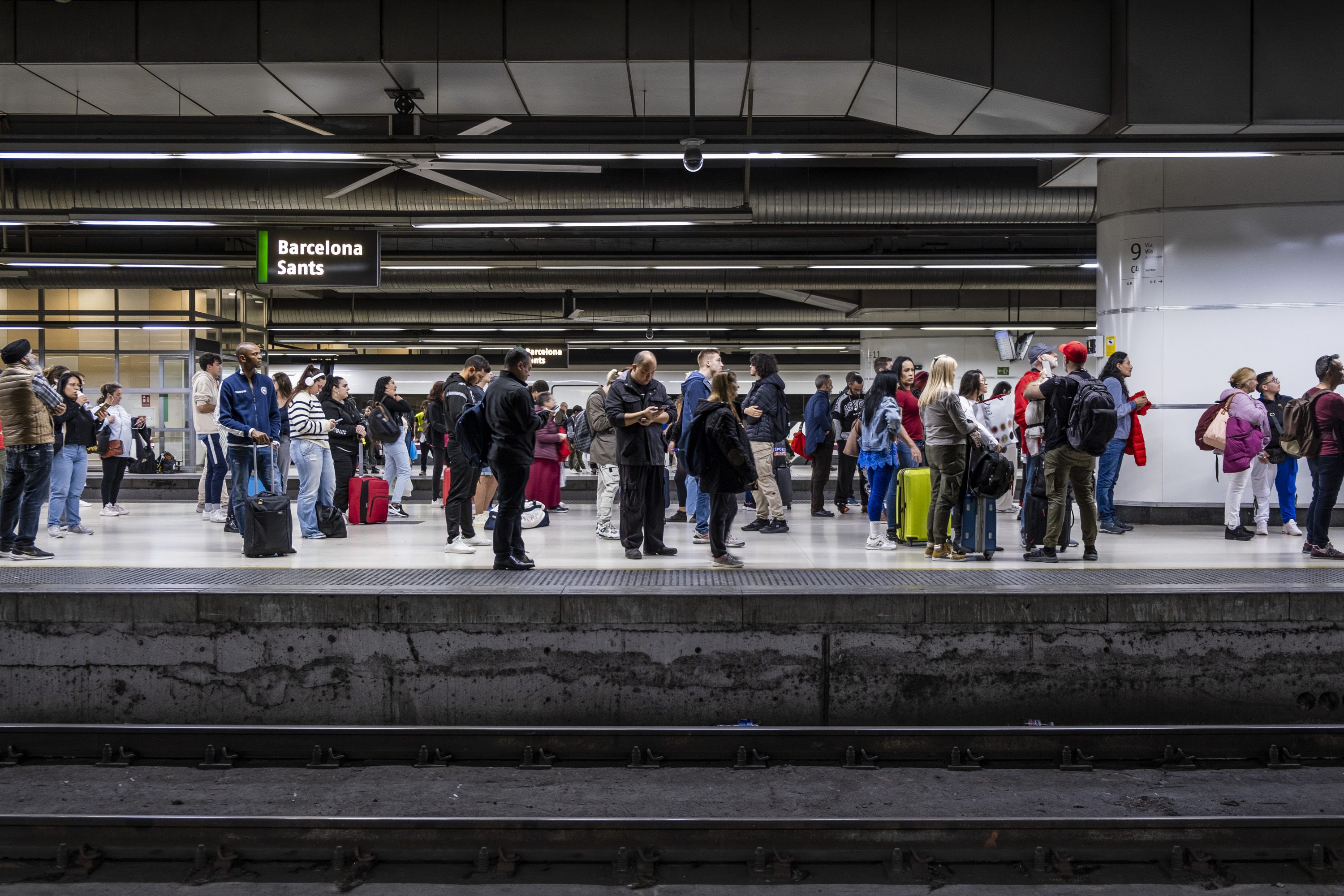The strike called by the unions represented by the public Spanish rail companies Renfe and Adif against the transfer of Rodalies will lead to the cancellation of around 400 trains in Catalonia, according to the provisions over minimum services during the strike days, which will take place this Friday, November 24th, as well as November 30th and December 1st, 4th and 5th. After the Spanish transport ministry announced the minimum state-level services on Tuesday - which in Catalonia affect medium and long-distance trains, as well as high-speed services - this Wednesday it was the Catalan government that decreed the minimum services that it will maintain for the Rodalies commuter service in Catalonia.
Specifically, according to the ACN agency, the minimum services decreed by the Catalan government set a frequency of 66% of normal Rodalies service during peak hours and 33% for the rest of the time on the five days of the strike, which will affect approximately 400 trains. Peak hours, when there will be more services protected, will be from 6am to 9:30am and from 5pm to 8:30pm. In addition, it should be borne in mind that the 24 hours of stoppage will also be observed by employees of Adif, the infrastructure manager. All of this will lead to some difficult days for train travellers, precisely as we head into the weekend this Friday and in the days leading up to the early December pont or extended break that many will take around the Spanish holidays of Constitution Day and the Puríssima - December 6th and 8th respectively. Trains will supposedly be back to normal from the 6th, but around 1,500 trains will stop running throughout Spain as reduced services will apply.
Yes, rail users should bear in mind that the strike takes place throughout the Spanish state,having been called as a protest against the political pact signed on November 2nd between the PSOE and ERC, agreeing on a general framework for the total transfer of the Rodalies rail service to the Catalan government - all in the context of the agreements to allow the new Pedro Sánchez government to form. For this reason and despite the fact that the unions affirm that they are not directly opposed to the transfer, but require more transparency and information, the strike is considered to be of a preventive and political nature, in the face of an agreement that will take years to become a reality and of which no the technical aspects have been addressed.
In any case, the position of the unions and their demand for information and transparency contrasts with the explanations given by the Catalan government, which has already guaranteed the working conditions of all employees, in addition to announcing that a collective agreement will be drawn up in collaboration between the Generalitat and Renfe to facilitate labor mobility. According to the Catalan territory ministry, this agreement will include respect for employment rights acquired by the workers and the government has given its word to the trade unions that it will explain how the transfer will be carried out and that the management will remain 100% public.

